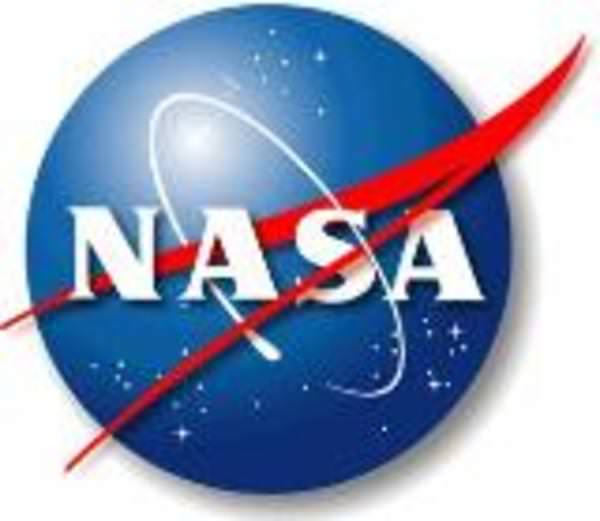
Spend your own money to travel to Florida during its least pleasant season, bum a ride to a rented house split with strangers, and wake up on a couch before dawn multiple days in a row. That’s no vacation – unless NASA requests your company.
The space agency invited a selection of its Twitter followers to the last five shuttle launches, including the July 8 liftoff of Atlantis, the last of the shuttle program. (I attended the Tweetup held in April and May for the final launch of Endeavour, then returned this month with a press pass.) Some 700 people have now traveled to its launch Tweetups, while hundreds more have attended shorter gatherings at its centers.
NASA first regarded Tweetups as an experiment, but they’ve become a key part of how it tells its story.
If NASA makes Tweetups look easy, that’s only because of mid-course corrections in response to lessons learned. Anybody planning for one of these Take Your Fans To Work Days would do well to pay attention – especially if they don’t have a spaceship to launch for the occasion.
Rob Pegoraro worked for more than a decade covering technology for the Washington Post. His blog can be found here and Twitter here.
- Talk to people before you invite them into your house. By the time NASA invited followers to visit its Jet Propulsion Laboratory in January of 2009, it had not only established an active Twitter presence, it had set up blogs for many of its personnel and even some of its spacecraft. Tweeps knew they could expect a conversation, not a lecture.
- Prepare for a crowd. “I was shocked people would fly across the country for a 2-hr event at NASA Headquarters,” emailed Stephanie Schierholz, the agency’s social-media manager. Its first-come-first-served approach for its initial shuttle-launch Tweetup in late 2009 had to be replaced by a random drawing (after screening out inert or abusive users) as the number of people applying soared, exceeding 4,100 for Endeavour’s last launch and 5,500 for Atlantis’s finale.
But NASA also sets aside guest spots – a good way to bring in people with oversized audiences and to reward fans who contribute extensively to its online community, if fodder for rare resentment over who gets this special nod. Compulsive tech blogger Robert Scoble made the cut in July this way; so did San Antonio Web designer Shannon Moore, who went to the first launch Tweetup and earned a sort of den-mother status by constantly sharing and curating other attendees’ tips and recaps. - The conversation will go on and on. At both launches I witnessed, NASA’s program – talks by astronauts, managers and researchers; visits to the 526-foot-high Vehicle Assembly Building and Pad 39A the day before launch; the exhilarating sight and sound of liftoff itself – fed into thousands of tweets. But the chatter spilled into private Facebook groups, Flickr albums, Google+ updates, Foursquare and Gowalla check-ins and such specialized applications as Storify, Scoop.it, and Beluga, making these Tweetups a generalized social-media hothouse. Among Schierholz’s suggestions to those considering hosting a Tweetup: “You have to ensure you don’t have any restrictions on what they can tweet or share (whether because of lack of bandwidth or because you don’t want a picture getting out).”
- A small, focused online community expands people’s trust. By the third launch Tweetup, travelers opted to share vacation homes instead of pricey hotel rooms near KSC – trusting that strangers would PayPal their share in advance. They did. And after a series of mechanical problems delayed Discovery’s final flight for 111 days, attendees had grown comfortable with a gift-economy approach to travel; Danielle Signor recalled that she “basically relied on others to get me to and from the airport.”
None of the four attendees of that Tweetup I reached recalled any hangups worse than minor personality conflicts. I had zero issues in the rented homes I crashed at during April and July (nicknamed “Skylab House” and “Serenity House,” in honor of NASA history and science fiction). In July, I didn’t even rent a car, trusting that the Tweetup hive mind would cover that if I paid for gas, tolls and an occasional meal. It did. - People will find ways to extend the experience. A launch Tweetup promotes the same sort of accelerated socialization as the first week of freshman year in college, so I was not surprised to see people organize a packed party a day after Atlantis’s launch – “Endless BBQ” – that featured two kegs but also webcams streaming the festivities and a telescope parked in the driveway. Another independently organized gathering happened the day afterwards: a trip to Port Canaveral to watch one of Atlantis’s solid rocket boosters get towed in. And it’s assured that when a NASA 747 ferries Discovery to the Air and Space Museum’s Dulles International Airport annex in 2012, space Tweeps will gather there for her arrival.










